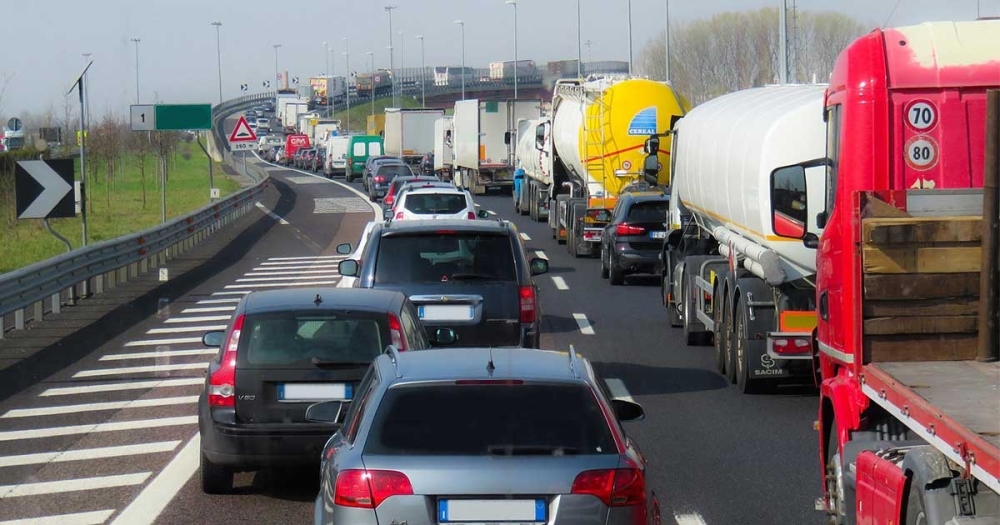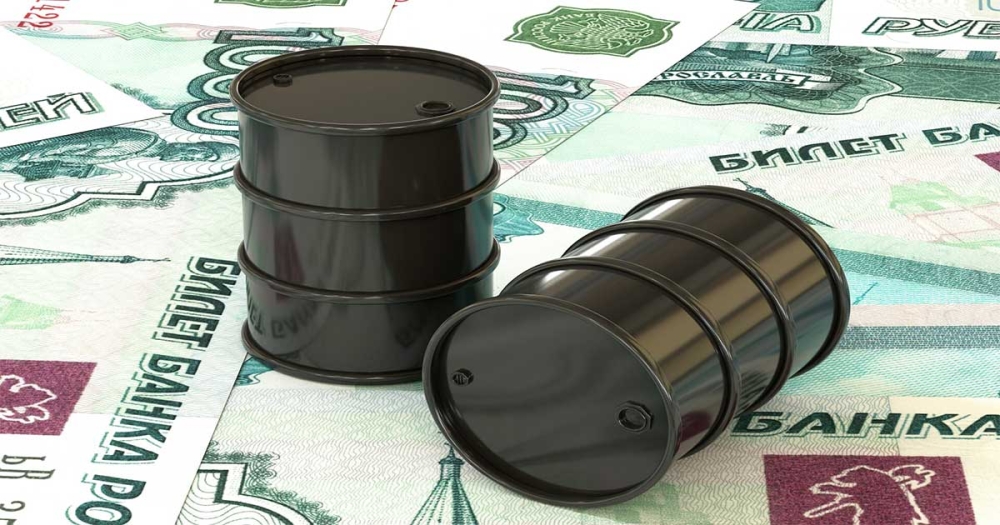To curb the negative effects of climate change, the European Union has set the objective to become carbon neutral by 2050. This means that it wants to emit less greenhouse gases, mainly carbon dioxide than it can capture naturally or artificially.
Reforming transport is an essential element of the plan. The move is needed because, alongside energy production, transport is responsible for the largest part of the EU’s carbon emissions.
This was mainly the driving force behind the European Commission's "Fit for 55" climate package of proposals a year ago, which included a requirement that from 2035 only cars and light commercial vehicles with zero CO2 emissions could be registered in the EU.
What happened at the last Council of Europe meeting?
The plan has been portrayed in the international and national press as an end to 150 years of internal combustion engines in the EU. However, this is not true, because hydrogen and so-called synthetic fuels can also be used to power an internal combustion engine in a carbon-neutral way, and the engine system does not even need to be significantly modified to refuel with the latter fuel. The Council of Europe recognised this at its last meeting when it included in its climate proposal to the European Parliament passages on the future role of climate-friendly alternative and synthetic fuels. This seemingly minor amendment, which the Germans introduced in the last round of negotiations, and which the Ministry of Technology and Industry, in line with the Hungarian government's position, has long been calling for, is in fact a huge change from the previous concept.
Synthetic fuel
One way of producing synthetic fuels is to mix carbon dioxide extracted from the atmosphere and produced by industrial operators with hydrogen produced via electrolysis, synthesising these to produce hydrocarbon-based compounds that can be used to produce end products such as petrol, kerosene, diesel, or LPG gas. These can have a carbon balance of zero compared to their petroleum-based counterparts, as their production consumes carbon dioxide. This technology works not just in theory. The first plants, such as HIF Global's units, will start production this year, and in the synthetic fuels market, mammoths such as Porsche, Siemens, Bosch and ExxonMobil have built up interests. It is subject to debate whether synthetic fuels are a viable long-term solution is subject to debate, but the drastic consequences of erasing today's internal combustion engines from the European history book of motorisation and why the attempt to keep them in the system is a political success are also worth discussing.
Social tensions
Wherever we go in the world, a home and a car that gives us freedom of movement are the two most important assets. Only a few people do not want to have a home and a car. The number of cars is growing everywhere in the world, including in Europe. There are around 255 million cars on the roads in the European Union, of which 1.2 million are electric. This means that if, say, combustion engines were given no chance of survival with synthetic fuels, the assets of so many European households would start to depreciate slowly as the 2035 target date approaches. Over time, only those who cannot afford a new car would buy a used diesel or petrol car at a depressed price. It is feared that a ban on internal combustion engines would make European societies two-speed. There would be a caste of privileged and environmentally friendly people who can afford new cars, and there would be a club of climate-destroyer losers who use a stigmatised, outdated technology.
The recent decision by the Council of Europe has now given everyone the chance to go green with their current car after 2035 and avoided the loss of hundreds of billions of euros in wealth across Europe while preserving our dignity. The average age of 255 million cars in the EU is close to 12 years. There are only two countries, Luxembourg and Ireland, where the proportion of vehicles less than 5 years old is just above the proportion of vehicles older than 5 years. The question arises: why don't people replace their cars more often, why don't they buy new ones? Certainly not because they are inextricably attached to older cars, but because they simply can't afford it. The car was expensive anyway, but now it will be even more so across Europe. Gábor Gablini, president of Gémosz (National Association of Motor Vehicle Dealers), says that the price of new cars in Hungary has risen by an average of 20 percent this year, but for some types, the price increase is as high as 40 percent. In a situation like this, I think conventional technology and second-hand cars must be valued and they also have to be greened.
Technological bubble, loss of competitiveness, loss of money
Green switchover hits European carmakers hard. German Finance Minister Christian Lindner; Hildegard Müller, President of the German Association of the Automotive Industry (VDA); Reinhard Zirpel, President of the Association of International Motor Vehicle Manufacturers (VDIK); Oliver Zipse, President of the European Automobile Manufacturers' Association (ACEA); Jürgen Karpinski, Head of the German Association of Motor Trades (ZDK); and Hartmut Rauen, representative of the German Mechanical Engineering Industry Association (VDMA), all spoke directly or indirectly in favour of the internal combustion engine.
The EU is lagging behind its competitors in many key areas (digitalisation, space, navigation systems, 5G, content delivery, etc.), but the car industry holds on, European car brands are in demand worldwide, and European cars have prestige. Together with the supply chain, the automotive industry accounts for over 6% of EU employment and over 7% of its GDP. This industry is important for us Hungarians too. According to Péter Szijjártó, the value of Hungarian automotive production is around 10 thousand billion HUF per year, and the sector provides around 150 thousand jobs.
Today, when we do not even know which battery technology will be the winner in the energy storage race, to fully commit Europe to electric powertrain would be too big a risk for both manufacturers and customers. Not to mention that the network for charging electric cars is far from being in place. Almost half of the total European charging network is concentrated in two countries, the Netherlands and Germany. The situation in most Member States is deplorable. The Baltic States, proud of their digital services, have 1,000 electric chargers per 6 million inhabitants
Unilaterally favouring electric cars could lead to a situation of superinflation in the car market with unforeseeable consequences. The rapid expansion of the electric car market expected by EU policymakers is creating a staggering demand for batteries, as well as metals and rare earths, which would further push up the price of these types in a market where people's purchasing power is falling dramatically due to the wartime inflation. The Council of Europe's decision to keep internal combustion engines in the system, therefore, seems a wise move to reduce risks.
Environmental issues
Let us ignore the ongoing debate about how environmentally friendly a battery car is over its entire life cycle. Unfortunately, thanks to marketing and simplistic logic, we think of a EURO6 “runabout” petrol car as more polluting than a Hummer with green plates. Even worse, people don't understand that an electric car is as green as the electricity it uses. Behind the political communication fuss around the green transition in Europe, the most polluting coal-fired power plants seem to be gaining ground. Breaking a trend since 2012, the amount of electricity generated by burning coal in the EU rose by 18% last year, a figure that could multiply this year because of the war. In such an environment, making the battery-powered car prevalent could be a serious misstep. At the same time, synthetic fuels may play a more important role in the climate fight.
Taking all this together, we can only hope that the European Greens and progressives, who are striving to hold the waning attention of the electorate, preserve the credibility of their political message and retain their ability to defend their interests even in the midst of war and economic crisis, will not want to kill off internal combustion engines at the next session of the European Parliament.




